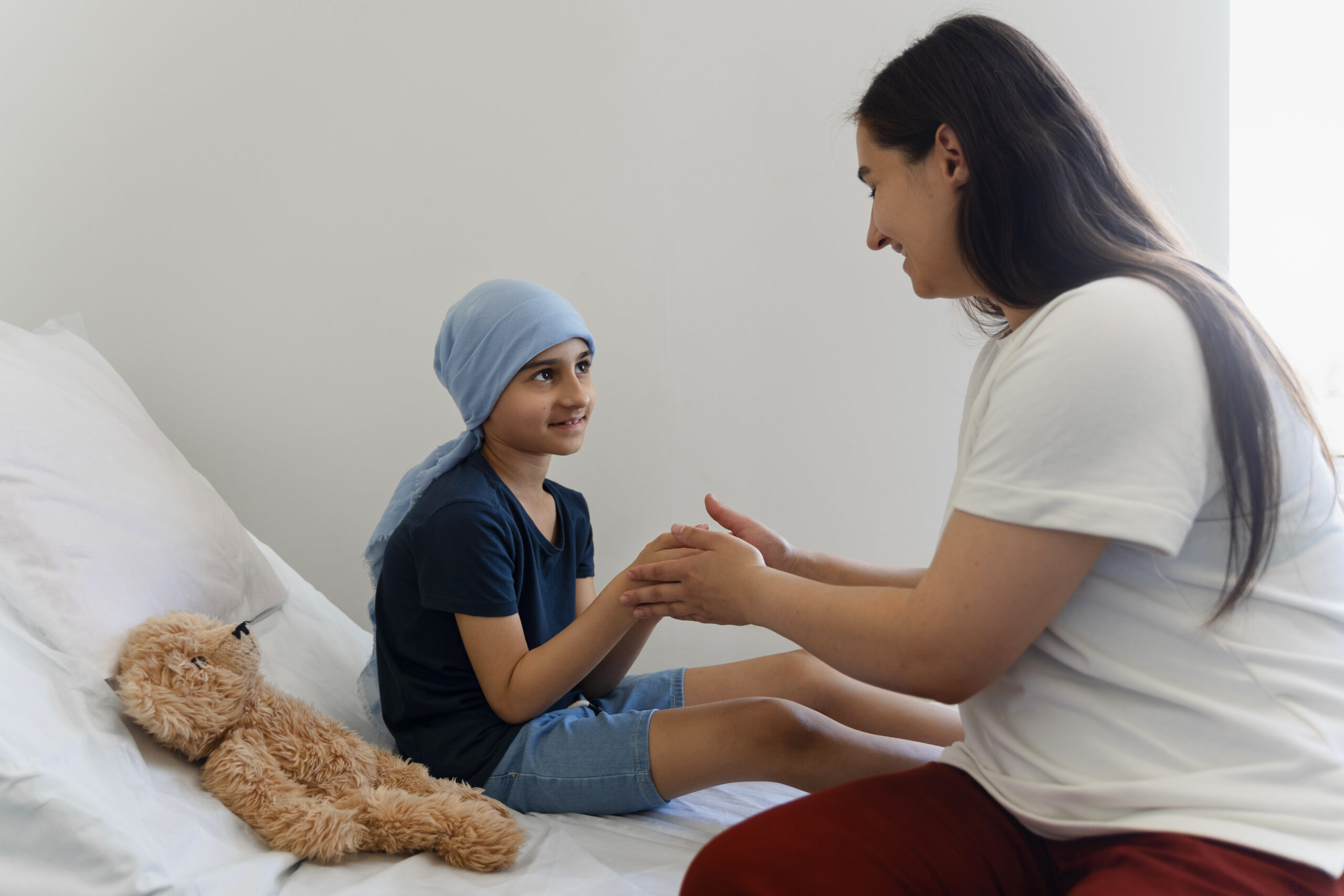
Child Blood Cancer Specialist in Delhi – Dr. Vikas Dua is Here to Help. In this blog post, he answers some frequently asked questions about childhood blood cancer. Read on!
Can Children Treated for Childhood Blood Cancers Lead a Normal Life?
Childhood cancer is a daunting diagnosis for any family to face. However, with advances in medical science and the expertise of specialists like Dr. Vikas Dua, a renowned child blood cancer specialist in Delhi, there is hope. The question on every parent’s mind is, “Can children treated for childhood cancers lead a normal life?” The answer is a resounding yes.
Dr. Vikas Dua reassures us that children treated for blood cancer can indeed lead fulfilling lives. Many blood cancer survivors, under the care of specialists like him, have grown into thriving adults. While treatment, especially for certain brain tumors, may involve radiation and present some challenges such as a potential drop in IQ, early intervention and comprehensive care can help these children achieve equal career and educational opportunities as their peers.
Identifying Blood Cancer Symptoms in Children
Recognizing the early warning signs of blood cancer in children is crucial. Dr. Dua emphasizes the importance of vigilance when it comes to detecting these symptoms. Some common indicators include a drop in hemoglobin levels, leading to abnormal paleness and increased tiredness in the child. Bluish or greenish discoloration on the hands and feet, as well as small red spots over the body, are cause for concern. Persistent nosebleeds and a heightened susceptibility to infections due to white blood cell impairment are also potential symptoms. Additionally, children may experience bone pain and enlargement of lymph nodes in the neck, armpits, or groin area.
The Role of Bone Marrow Transplants in Blood Cancer Treatment
A significant advancement in the treatment of blood cancer is bone marrow transplant. Dr. Dua explains that bone marrow transplants harness the immune response of donor stem cells to combat remaining leukemia cells, known as the graft versus leukemia effect. While this procedure is often successful, there are instances where, unfortunately, relapses occur even after a bone marrow transplant.
Treatment Options for Childhood Blood Cancer in India
In India, the treatment of childhood cancers primarily involves chemotherapy, with the potential addition of surgery and radiation therapy when necessary. In some cases, a combination of these modalities may be utilized. Immunotherapy is also becoming increasingly relevant for treating leukemias and lymphomas in children.
Cure Rates for Leukemia in Children
One of the most promising aspects of childhood cancer treatment is the cure rate. Dr. Dua highlights the substantial progress made in recent decades. In the 1960s, the cure rate for childhood lymphoblastic leukemia was a mere 4%. Today, that figure has risen to an impressive 85%.
Duration of Blood Cancer Treatment in Children
The duration of treatment for blood cancer in children varies depending on the type of cancer. For acute lymphoblastic leukemia, there is typically a six to eight-month protocol-directed therapy followed by two years of maintenance therapy, which includes oral medications. This initial phase is intensive, with frequent hospital visits. In contrast, acute myeloid leukemia requires four cycles of chemotherapy over a period of six to eight months, often necessitating prolonged hospitalization.
Managing Late Effects of Childhood Blood Cancer
It’s essential to be aware of the potential late effects of childhood cancer, which can include cardiovascular, musculoskeletal, reproductive, and endocrine-related problems. Lifelong, focused follow-up care is crucial to monitor and address these effects in a timely manner.
Advice for Caregivers of Childhood Cancer Patients
Dr. Vikas Dua offers valuable advice for caregivers of childhood cancer patients. First and foremost, strict adherence to the recommended treatment protocol is vital. Maintaining impeccable hygiene to prevent infections is also a priority. Addressing chemotherapy side effects like oral ulcers promptly and providing emotional support to the child during treatment are equally important.
In conclusion, children treated for blood cancer can lead normal, fulfilling lives, thanks to advancements in medical science and dedicated specialists like Dr. Vikas Dua, a child blood cancer specialist in Delhi. Early detection, a multi-modal treatment approach, and comprehensive care contribute to high cure rates and improved quality of life for young cancer survivors.

